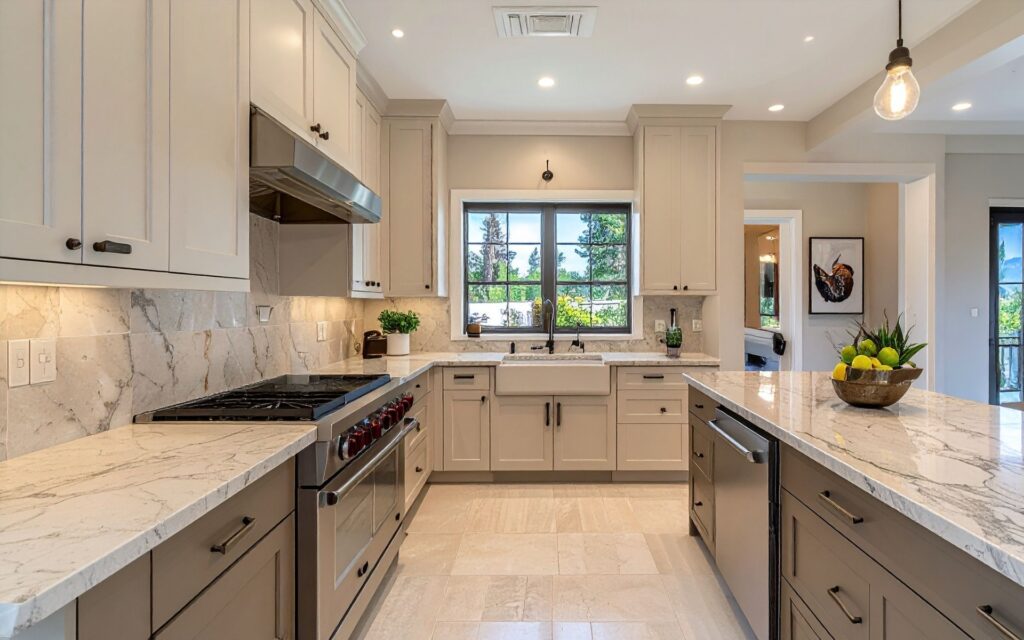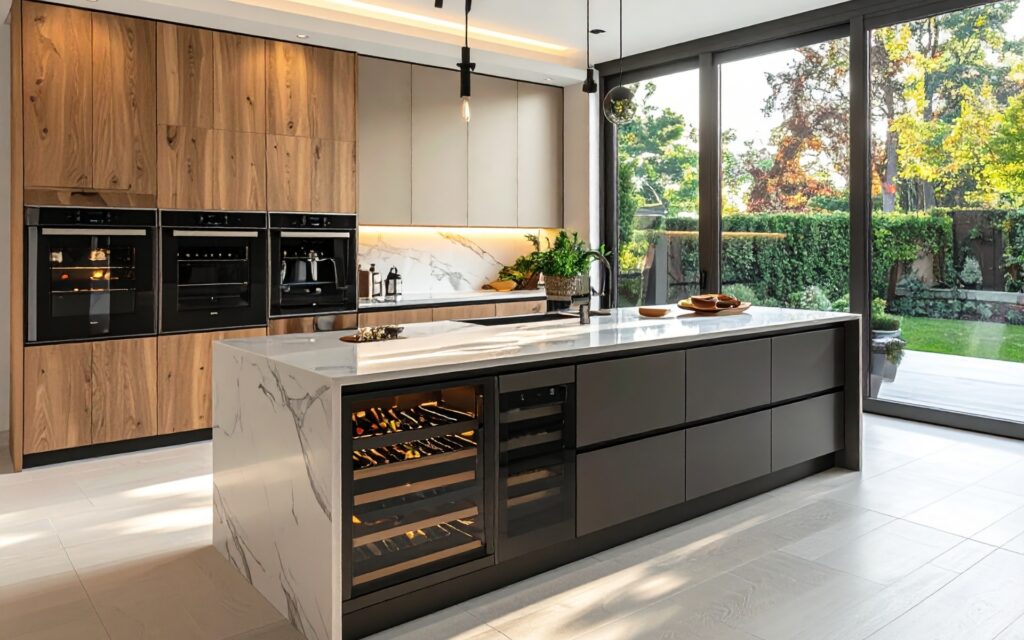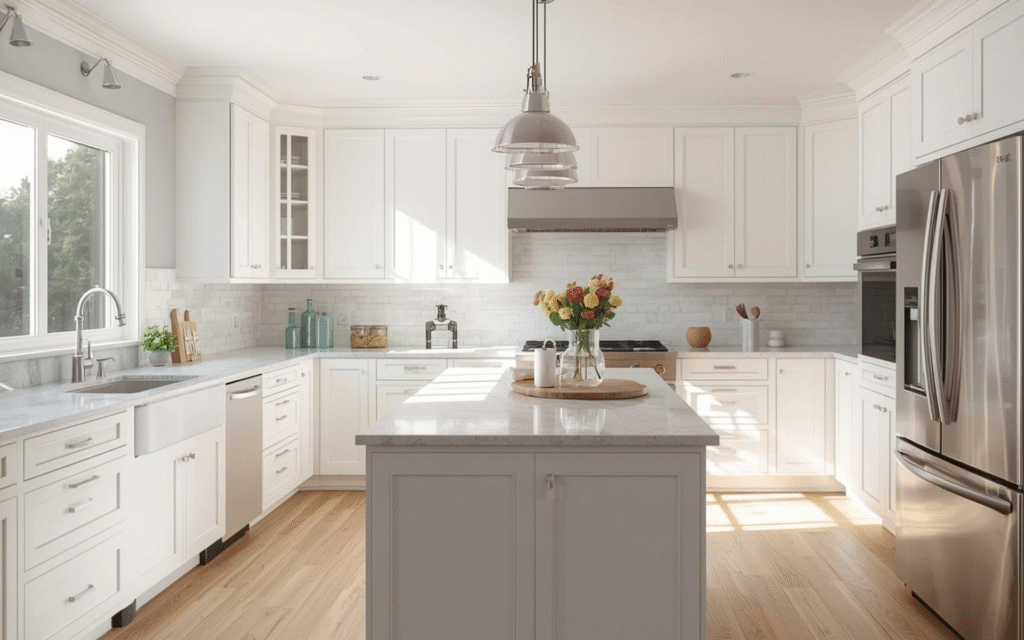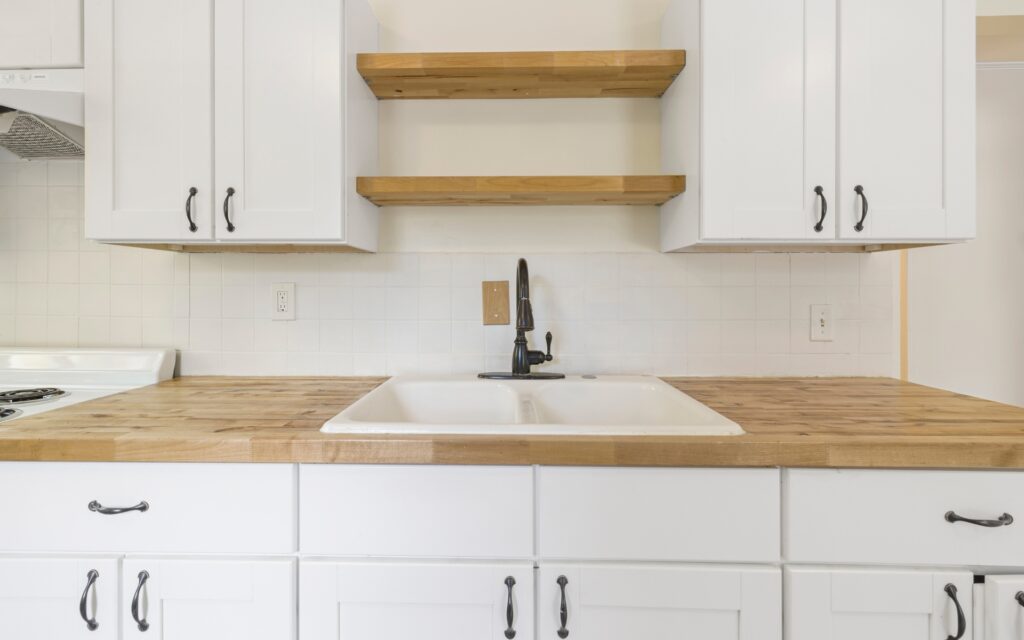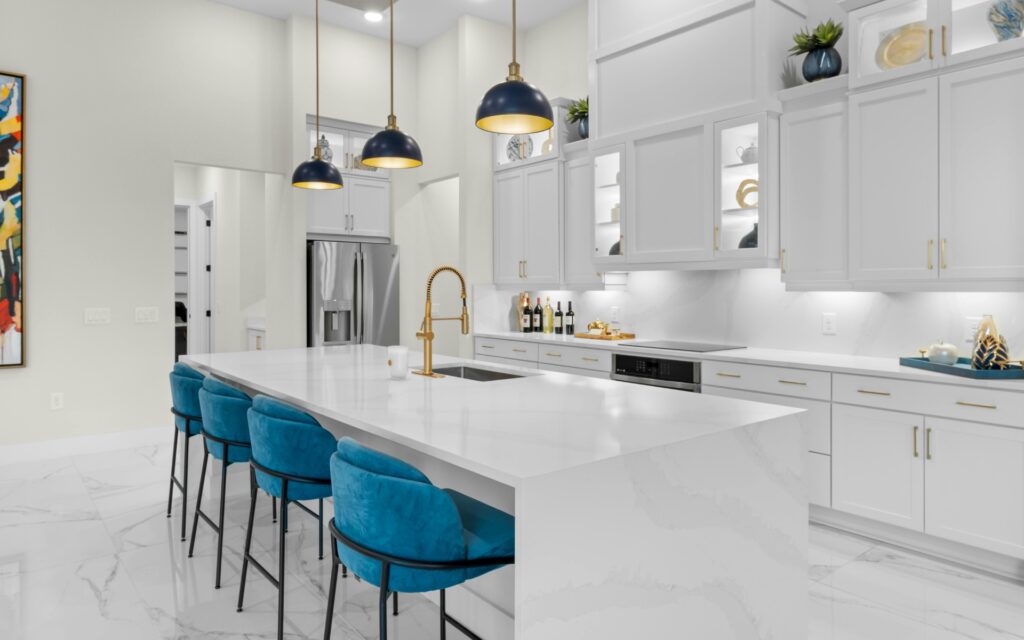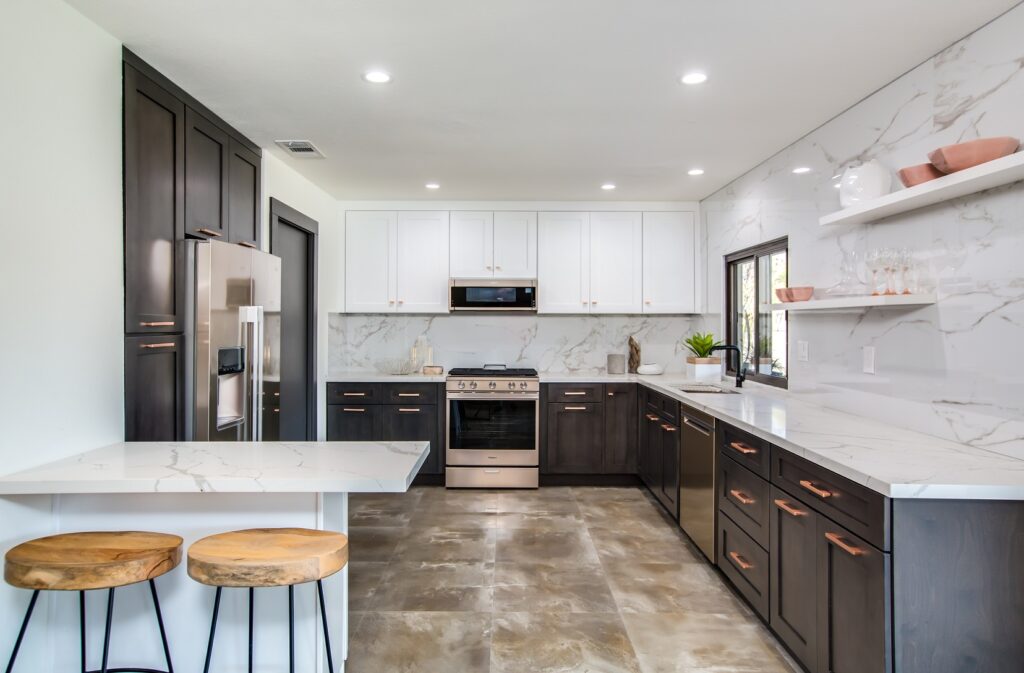So, you’re ready for new countertops. That’s exciting! You want something beautiful, durable, and worth every penny. Two materials keep showing up at the top of every homeowner’s list: granite or quartz. They both look stunning and last for decades, but they’re quite different when you dig into the details.
Let’s break down everything you need to know about granite and quartz kitchen countertops. You’ll discover which one fits your lifestyle, your budget, and your style. Making the right choice for your bathroom or kitchen remodeling becomes much easier once you understand what each material brings to the table.
Understanding Granite Countertops
For decades, people have chosen natural stone for their kitchen countertops. Granite is remarkable because it forms deep in the Earth under high heat and pressure. This makes each slab truly one-of-a-kind by creating patterns that differ from one another.
What Makes Granite Special
Imagine that granite slabs come straight from quarries all across the world. Each piece is different from the others. Because of these natural differences in color and design, your countertops will be one of a kind in your home. There are a lot of different granite colors, from deep blacks and rich browns to light creams and even blues and greens.
Heat resistance? That’s where granite really shines. You can place hot pots and pans directly on the surface without any worry. This makes it incredibly practical for busy kitchens where cooking happens every single day.
Granite Maintenance Requirements
Now, granite does require periodic sealing to keep its resistance to stains and moisture. Indeed, most experts recommend resealing your granite once or twice a year, but this depends on the type of granite you have and how often you use it. According to HGTV, properly sealed granite can last a lifetime with minimal maintenance.
It’s straightforward to keep granite clean. For daily cleaning, soap and water are all you need. Just stay away from harsh chemicals or acidic cleaners that could harm the sealant over time.
What About Quartz Countertops?
The countertop industry has been significantly altered by engineered stone. When people debate quartz or granite, they often focus on quartz’s consistent appearance and super low-maintenance appeal. Actually, quartz countertops are made up of about 90–95% ground raw quartz mixed with resins and pigments.
Benefits of Quartz
You don’t need to seal quartz because it is quite strong. The way it is manufactured makes a surface that doesn’t absorb stains. If you clean up wine, coffee, or oil that has spilled within a suitable amount of time, it won’t get into the surface.
For a lot of homeowners, consistency is quite important. While granite shows natural variations, quartz provides uniform color and pattern throughout the entire slab. This makes it much easier to picture how your kitchen renovation project will look when it’s done.
Leading brands like MSI Quartz offer hundreds of color options. You can find quartz that mimics natural stone perfectly, or choose bold, contemporary colors that would never occur in nature. This flexibility makes quartz work for literally any design style.
Disadvantages of Quartz
Heat sensitivity? That’s the main drawback here. The disadvantages of quartz include vulnerability to damage from hot pots and pans placed directly on the surface. Always use trivets or hot pads to protect your investment. According to Angi, extreme heat can cause discoloration or even cracking in quartz countertops.
Over time, direct sunlight can degrade quartz, especially dark-colored quartz. If your kitchen gets intense sun exposure through large windows, granite might serve you better. Consider window treatments to protect your countertops if you go with quartz.
Granite vs Quartz: A Comparison
Durability and Strength
Both materials rank incredibly high for durability. Granite is naturally hard and resistant to scratches, though it can chip if you strike it with heavy objects at the edges. Quartz offers similar scratch resistance and tends to be slightly more flexible, which reduces the risk of cracking during installation.
Maintenance and Care
When it comes to low maintenance, quartz is unmatched. That non-porous surface means no sealing is required. Cleaning it every day with mild soap keeps it looking new.
A regular sealing gives granite a little more care, but to be honest, most homeowners don’t mind this little maintenance. The natural beauty makes it totally worth the effort for them.
Cost Comparison of Granite vs Quartz
The pricing for granite vs quartz varies pretty widely based on quality, color, and source. Generally speaking, mid-range granite and quartz cost about the same. You’re typically looking at $50-$100 per square foot installed. Exotic granite varieties can cost significantly more, while basic granite options might cost less than quartz.
Installation costs stay pretty similar for both materials. Your countertop installer will need the same tools and expertise regardless of which material you choose. Getting quotes from multiple countertop suppliers helps you find the best value for your project.
Appearance and Style
The natural beauty of granite is captured in its many differences. If you like the way natural stone looks, with its organic patterns and color shifts, granite is the way to go.
More control over appearance is possible with quartz. Since it’s manufactured, you can select from consistent patterns and colors. Some quartz designs mimic natural stone beautifully, while others embrace contemporary aesthetics you’d never find in nature.
Which Material Is Right for You?
Think about how you actually use your kitchen. Do you cook frequently and need maximum heat resistance? Granite might be your best bet. Prefer something low-maintenance that never needs sealing? Quartz could be perfect for you.
Consider your design vision, too. Natural stone lovers often gravitate toward granite’s authentic variations. Those wanting specific colors or consistent patterns throughout their space tend to prefer quartz.
Yes, the budget is essential, but quality is much more critical. If you take care of them, both materials can last for decades. Investing in premium options from trusted countertop brands ensures you get the best performance and appearance for years to come.
Finding Quality Countertops in Chicago
Shopping for countertops works best when you can actually see and touch the materials. Visiting a countertop store lets you compare different slabs, feel their textures, and see how colors look under different lighting conditions. Photos online just don’t do these materials justice.
You need to hire a professional to install high-quality kitchen countertops. If you hire professional installers, you can be sure they will provide proper support, accurate measurements, and almost imperceptible seams. The right countertop installer makes all the difference in how your finished project looks and performs.
CabinetLand showroom in Schaumburg displays a wide selection of both granite and quartz options. You can compare materials side by side and get expert guidance on what works best for your specific home. Our team helps homeowners throughout the Chicago area choose and install the perfect countertops for their full-service remodeling or renovation. Whether you choose granite, quartz, or want to explore other options, we’ll guide you toward the best solution for your home and budget.

